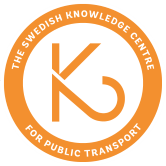The need to decrease emissions from the transport sector is getting urgent and public transport can play an important role in the transition to low emission fuels. To a large extent, public transport in Europe is provided by regional authorities who controls the traffic to a varying degree, from complete public monopoly to competitive tendering. Therefore, the aim of this paper is to analyse how the organisation of the public bus transport market influences the introduction of renewable fuels. The focus is on understanding what the motivation is for the use of different organisational forms and what challenges and opportunities the authorities in a region encounter during the introduction of renewable fuels. Interviews with authorities in ten Swedish public transport regions show that when functional requirements are used in competitive tendering it will exclusively result in the cheapest renewable fuel available. Thus, if new fuels or technologies should be able to enter the market, either it will be necessary for regional authorities to take more control using specific requirements or publicly management, or the national government must introduce policy instruments that enable new renewable fuels to become competitive on the market.
Read the article here:
